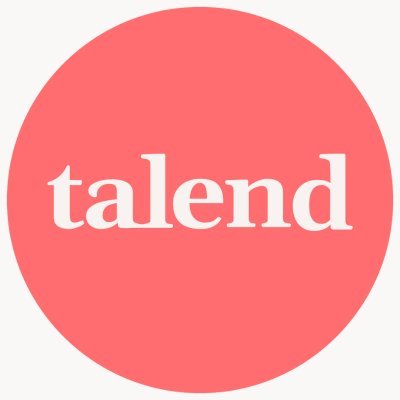About Airbyte
Airbyte is the open standard in data movement, and can be deployed self-hosted, cloud, or hybrid. Airbyte is used by 18% of the F500 and has over 25,000 community members.
About Fivetran
Fivetran is a cloud-based data integration platform built through multiple acquisitions including Census, HVR, and Tobiko. With volume based pricing and a closed-source model, Fivetran provides a managed service approach that trades control for convenience.
Limitations of Using Fivetran
Patchwork Architecture
Fivetran has pursued an aggressive acquisition strategy to expand its capabilities, purchasing HVR for $700 million in 2021, Teleport Data earlier the same year, Census in 2025, and Tobiko Data later that year. Each acquisition added capabilities that Fivetran did not previously provide, from change data capture to reverse ETL to data transformation. While this approach allowed rapid feature expansion, it creates architectural challenges as the platform integrates disparate technologies built on different foundations.
The integration of these acquired technologies requires careful execution to avoid a fragmented user experience, with HVR in particular requiring considerable expertise to deploy and support given its steep learning curve. Organizations evaluating Fivetran should consider whether this acquisition-based growth strategy introduces complexity compared to platforms built with unified architectures from the ground up.
Unpredictable Costs
Fivetran's consumption-based pricing model uses Monthly Active Rows (MAR) as its billing metric, counting any row that is inserted, updated, or deleted within a month. A significant pricing change in March 2025 shifted from account-wide MAR discounts to per-connector billing, eliminating bulk discounts and potentially increasing costs for businesses using multiple data sources. Seasonal spikes, marketing campaigns, and product catalog updates can significantly impact MAR usage, leading to unexpected cost increases that make budget planning difficult.
For eCommerce and high-frequency event tracking use cases, the MAR model can become particularly expensive, with every click, cart update, and order change counting as additional rows that quickly inflate costs during peak traffic periods. Organizations need to carefully monitor usage patterns and understand how their specific data characteristics will affect monthly spending.
Connector Bottlenecks
Fivetran offers a "By Request" program where users can submit requests for new Lite connectors, but the company notes that requests are prioritized based on demand and can take weeks to months to build. The initial review process alone aims to take two to eight weeks, though timelines are estimates that depend on the complexity and completeness of the request. While Fivetran does provide a Connector SDK that allows organizations to build their own custom connectors using Python, this shifts development responsibility to the customer rather than providing immediate access to needed data sources.
The company acknowledges that connector requests are prioritized based on the volume of customer requests received, meaning organizations with niche data sources may face extended wait times. This vendor-controlled roadmap creates dependencies that can delay critical data integration projects when teams need access to specific sources that aren't yet supported in Fivetran's connector catalog.
Benefits of using Airbyte
Control your data
Airbyte gives you complete control over your data infrastructure with flexible deployment options that adapt to your security and compliance requirements. Whether you need to keep sensitive data on-premise for sovereignty requirements, leverage cloud scalability, or implement a hybrid approach, Airbyte's single codebase architecture ensures consistent functionality across all deployment models. This flexibility helps organizations meet strict compliance standards like GDPR and HIPAA while maintaining full ownership of their data pipeline infrastructure.
Build without limits
With over 600 pre-built connectors and an AI-powered connector builder, Airbyte removes the traditional barriers to data integration. The platform's extensive connector library covers everything from modern SaaS applications to legacy databases and unstructured data sources. When you need a custom connector, the no-code Connector Builder and low-code CDK enable rapid development in hours instead of weeks. This is amplified by a vibrant community of over 1000 contributors who continuously expand the ecosystem, ensuring you're never blocked by connector availability.
Scale with confidence
Airbyte's predictable capacity-based pricing model means you can scale your data operations without worrying about surprise bills or budget overruns. Unlike consumption-based models that penalize growth, Airbyte's transparent pricing grows predictably with your infrastructure needs. Combined with enterprise-grade reliability featuring 99.9% uptime SLAs and the freedom to choose between deployment options, organizations can confidently scale their data operations without vendor lock-in concerns.
FAQs
1. How does Airbyte compare to Fivetran in data integration and scalability?
Airbyte is an open-source ELT platform built for engineering teams that need scalable, customizable pipelines across 600+ connectors, with full control via self-hosted, cloud, or hybrid deployments. Fivetran is a fully managed SaaS tool focused on simplicity and hands-off syncing, but offers less flexibility and transparency.
2. Which platform, Airbyte or Fivetran, offers greater flexibility for deployment and data governance?
Airbyte offers much greater deployment and governance flexibility: self-hosted, cloud, hybrid, and Airbyte Flex let you choose exactly where pipelines run and data is processed, supporting sovereignty and compliance. Fivetran is cloud-only, with all processing in its managed environment, which can be limiting for strict governance needs.
3. How do Airbyte and Fivetran compare in cost and scalability?
Airbyte’s capacity-based pricing is predictable, usage-aligned, and fully transparent—and the open-source edition can run free on your own infrastructure. Fivetran’s active-row pricing charges by data volume and update frequency, which can become expensive as data grows and syncs increase.
4. Which is more developer-friendly, Airbyte or Fivetran?
Airbyte is more developer-friendly, with open APIs, a CDK, and full source access so teams can build or customize connectors and plug into Airflow, Dagster, and dbt. Fivetran offers limited extensibility and depends on the vendor to release or update connectors, giving engineers less control.
5. When should a data team choose Airbyte over Fivetran?
Choose Airbyte when you need flexible, transparent, and highly scalable pipelines—especially for AI-ready or analytics-heavy platforms. Its 600+ connectors, capacity-based pricing, and hybrid deployment model make it a stronger fit for enterprises that care about control, governance, and cost at scale.




%201.svg)





































.png)




.png)
.png)
.png)
.png)
.png)
.png)
.png)
.png)
.png)
.png)
.png)
.png)
.png)